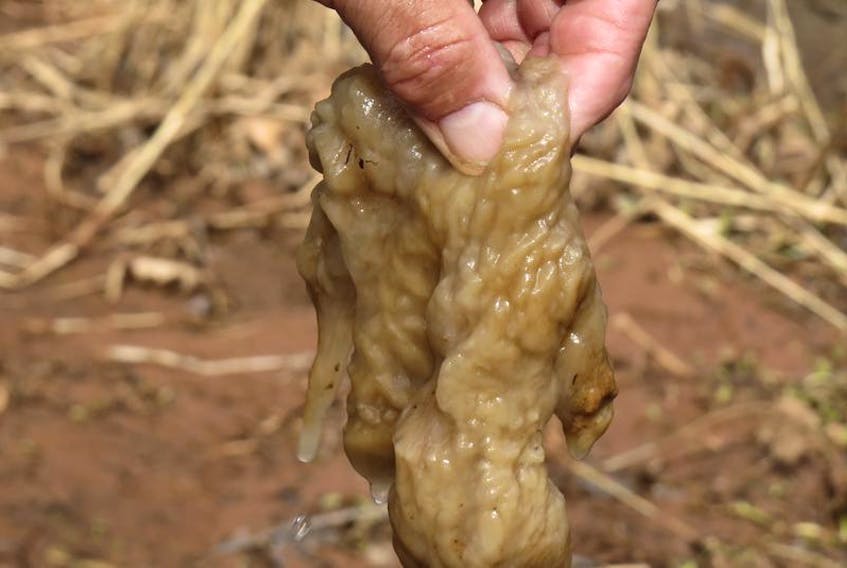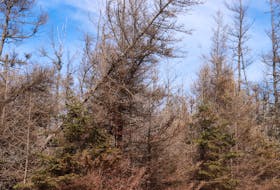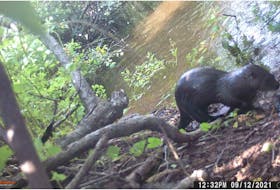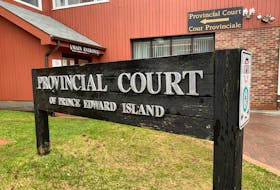CARDIGAN, P.E.I. — Months after a smelly, slimy mess started showing up in the Cardigan river, the P.E.I. government is still working with the owner of a local fish hatchery to try to stop it.
Greg Wilson, manager of environmental land management with the province, said the government sent Mowi Canada East a letter in November notifying the company about concerns with what was happening at its hatchery.
Wilson said the material isn’t toxic to fish, but it is building up on branches, rocks and other things in the river, which are important areas for providing habitat.
“That’s why we’re concerned. It’s something that shouldn’t be there, and even though it may not have an effect right now on fish populations, maybe in the future if it stays there or gets worse, it will.”
Last summer, a Cardigan area resident contacted The Guardian with concerns about runoff from a fish hatchery that was leaving a slimy mess in the Cardigan River.
Photos of the river showed a foamy scum floating on top of the water near pipes leading out of a nearby pond at the hatchery.

At the time, conservation officers investigated, and samples tests found the water wasn’t harmful to fish.
Wilson said that since the government sent the letter, Mowi Canada East provided a draft plan with how the company will address the issues, included some measures already implemented.
Those measures include increasing the frequency of removal of material in a fish-waste tank.
Mowi Canada East also made some changes to piping in a settling pond to try to prevent some of the sludge from getting into the river.
In addition, the company has placed floating booms in the water to help contain some of the material.
Wilson said the belief is that there is extra organic material going into the river from the hatchery.
“I must say the company’s been very co-operative in getting back to us and working with us to try and figure this out,” he said.
Along with the measures Mowi Canada East has implemented to try to stop the organic material from ending up in the river, Wilson said the company is doing water sample testing and increased monitoring.
In a statement sent to The Guardian, Mowi Canada East said it has only been operating the Cardigan fish hatchery for a year and a half, during which time it became aware of “legitimate concerns” from local residents that it will address.
“We are now working with the government of P.E.I. on enhancements we will make to our existing approach to monitoring and treating wastewater,” the company said.
Mowi Canada East’s statement said the company’s work to address the issue was in response to concerns raised by residents, not because of any specific health concerns or regulatory requirements.
“With the data we gain from monitoring work, we will have a better sense of what will be an appropriate and effective path forward with respect to responsive actions.”
Mowi Canada East said it will be able to provide further comment in the spring when monitoring work has finished.
“This work will take some time to complete, and we appreciate the patience of concerned residents.”









